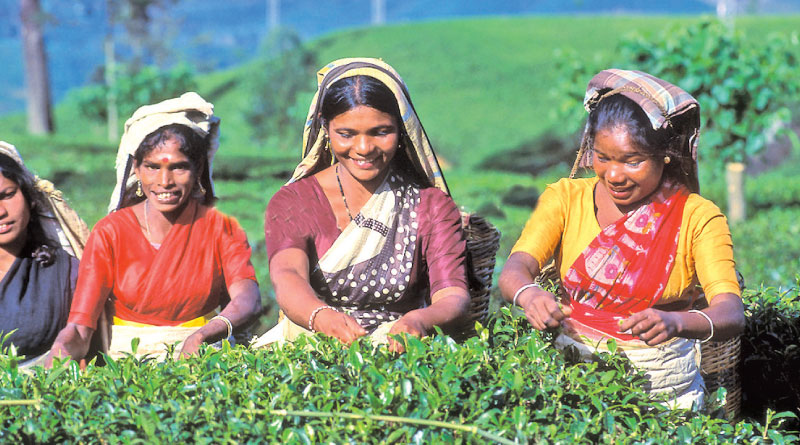This week’s Tea Auction on Wednesday, ended with the Low Growns meeting with fair demand and BOP1 / OP1s gaining in value. OPs appreciated in value too, Asia Siyaka Vice President Sohan Samaranayake confirmed to Daily News Finance yesterday.
Pekoe / Pekoe1’s were fully firm on last week’s levels. In the Tippy Small leaf catalogues FBOP1s sold at dearer rates, he remarked whilst FBOP / FBOPF1s were irregularly lower. “FBOPFs were fully firm on last week’s levels. However, BOPs sold at lower rates. BOPFs gained in value.
There was good general demand in the Ex-Estate catalogues, but some of last week’s gains were lost. Select best Western BOPs moved up on special inquiry.
Kenya Tea output well below expected
Meanwhile, according to reports in The Telegraph, the world’s top exporter of black tea is failing expectations in value and volume on a crop critical to the country’s foreign exchange. Production is down 8.5% to 316.8 million kilograms, according to the Kenya Tea Directorate.
“PG Tips and Lipton are very popular brands, and although growth of black tea in developed markets has slowed down. We are focused on turning this around, while also expanding the brands into herbal teas and other segments that are growing,” a Unilever spokeswoman told foreign media.
The Kenyan government created a $10 million financing package for tea smallholders to help them diversify their crops and to assist in targeting foreign markets. The goal is to encourage less production of commodity cut, tear, and curl (CTC) in favour of high-earning orthodox teas. Agriculture Cabinet Secretary Mwangi Kiunjuri, said that repayments do not begin until a year after the loans are made as a cushion for farmers. The loan rate is 3% compared to commercial loans that average 13%.
Iran set to topple Russia as India’s largest tea importer
Reports in the Business Standard said that Iran was set to overtake Russia this year as the largest importer of Indian tea, despite the US sanctions on trade that it is facing. Exports to Iran hit a record high of 43.76 million kg this year till September, earning India a forex of $172.84 million.
Sources said owing to the US sanctions on Iran, other exporting countries like Sri Lanka have found it hard to sustain their shipments. After the sanctions were imposed, there was some uncertainty over how payments would be made, given that Iran did not have adequate foreign exchange.
“This trade agreement has not only helped India sustain the market but expand it as well. While exports from other countries faced uncertainty, Indian exporters were able to eat into the competition and gain market share,” a planter, who directly exports bulk tea to Iran, told Business Standard.
Between January and October, with India maintaining focus on Iran and increasing its exports to that country, Ceylonese tea shipments to Iran dipped by 9.52 per cent to 18.27 mkgs . Data sourced from the Tea Board showed that between January and September, export of tea to Iran rose by 115.67 per cent to touch 43.76 mkg, while the foreign exchange income soared by 133.38 per cent at $172.84 million.
In comparison, exports to Russia and other CIS countries were down 11.46 per cent, to 41.72 mkgs and forex inflow shrank by 12.99 per cent, to $97.81 million.
Historically, Russia has been the largest importer of India tea, and exports to Russia and CIS taken together, usually account for 25-30 per cent of total Indian tea exports.
Analysing the current trade scenario, exporters are of the view that Iran will top the chart this year emerging as the top tea exporting destination for India and Russia will finish second in the run.
“What is interesting to note here is the fact that export prices have also raised”, A.K. Ray, Deputy Chairman at the Tea Board told this newspaper.
According to Ray, improvement in quality has resulted in better prices. The Tea Board made garden closure compulsory last year, in order to improve quality. It issued similar orders this year. Moreover, it is continuously monitoring tea quality and weeding out bad teas.



Add new comment